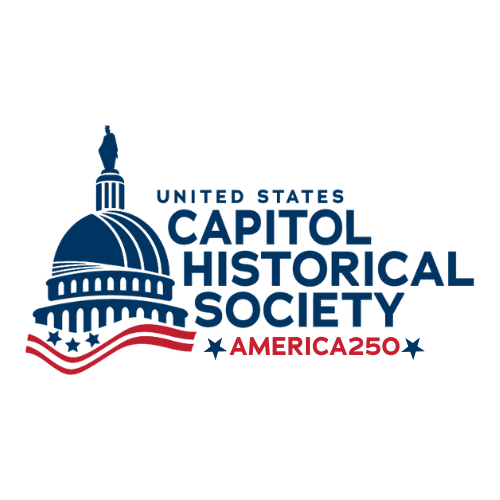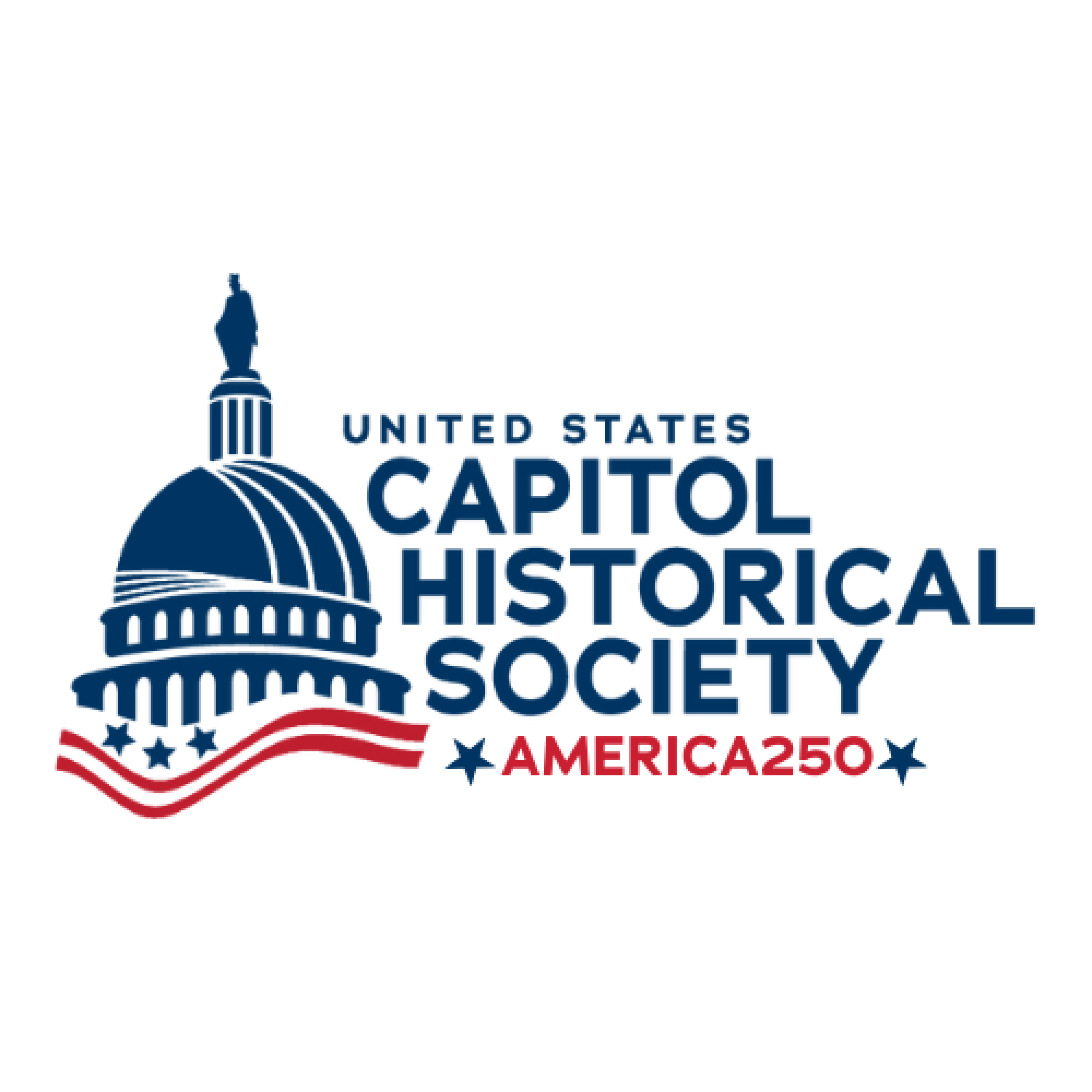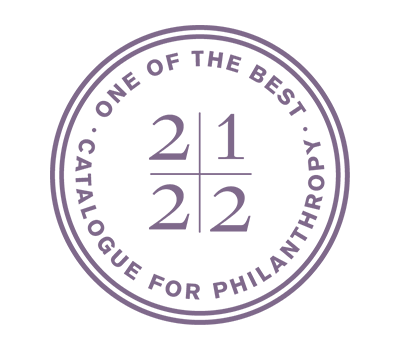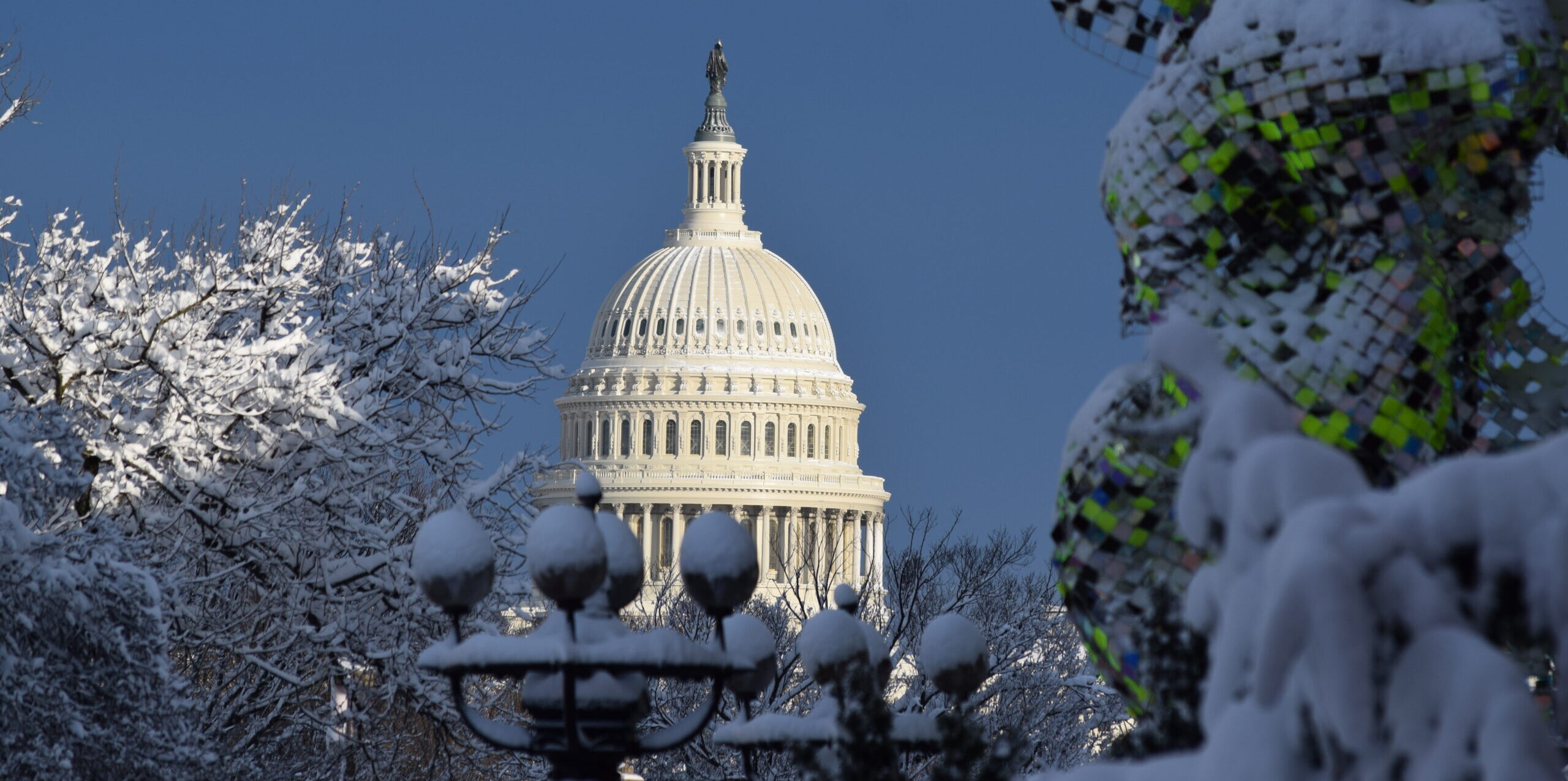December 19, 2023
Extending the Right to Vote: The 15th Amendment's Enduring Impact on Voting Rights
Ratified in 1870 as the last of the Reconstruction Amendments, the 15th Amendment prohibits the denial of a citizen’s right to vote based on race, color, or previous condition of servitude. Despite its ratification, state laws, literacy tests, poll taxes, the “grandfather clause,” and voter intimidation continued to prevent African Americans from exercising their voting rights. Dr. Scott explains why this amendment was crucial in the fight for equality and how it addressed but did not fully resolve the barriers to voting in the aftermath of the Civil War. Don’t miss this opportunity to learn why the 15th Amendment was necessary to solidify voting rights for all and how it remains relevant in today’s fight for a fair and inclusive democracy.
*
Toward a More Perfect Union: Education as a Civil Right
Formal education in North America predates our country’s founding, yet access to this vital resource remains inequitable. Join us for an engaging video featuring Derek W. Black, a renowned professor and the Ernest F. Hollings Chair in Constitutional Law at the University of South Carolina. Professor Black, author of ‘Schoolhouse Burning: Public Education and the Assault on American Democracy,’ brings to life the critical role public education plays in shaping American democracy. He explores the development of education since the United States’ founding and addresses the persistent challenges in providing equal access to this essential right. Engage with us in this vital conversation about the influence of education on civic equality and the future of our democracy.
December 15, 2023
From Radical to Unifier | C.W. Goodyear Discusses His Latest Book on President Garfield
Discover the remarkable story of President Garfield, a leader who dedicated his life to uniting a divided nation. We explored President Garfield’s two decades in Congress, his role during America’s Reconstruction and the Gilded Age, and his tragic assassination. This book follows Garfield’s journey as an impoverished boy working his way from the frontier to the Presidency; a progressive statesman, trying to raise a more righteous, peaceful Republic out of the ashes of civil war; the tragically imperfect course of that reformation, and the man himself; a martyr-President, whose death succeeded in nudging the country back to cleaner, calmer politics.
November 17, 2023
KLAN WAR - The Untold Story of Grant vs. the KKK: A Deep Dive with Historian Fergus M. Bordewich
Discover the pivotal role of Ulysses S. Grant in the battle against the Ku Klux Klan in our latest webinar, featuring acclaimed historian and author Fergus M. Bordewich. Together, we explored his latest book, “KLAN WAR: Ulysses S. Grant and the Battle to Save Reconstruction.” In this groundbreaking historical exploration, Bordewich redefines Grant as a formidable force against the first organized terrorist movement in America—the Ku Klux Klan. Bordewich challenges the traditional perception of Ulysses S. Grant as a weak president. Instead, he offers a fresh perspective on Grant’s presidency and his fight for civil rights.
October 19, 2023
Foreign Policy Expert On the Power of Bipartisanship and Cooperation in a Polarized Age
In today’s polarized political climate, how does bipartisanship still find its way into U.S. foreign policy? We explored this important topic with Dr. Jordan Tama, a U.S. foreign policy expert and Professor at the School of International Service at American University. Dr. Tama’s latest book, Bipartisanship & U.S. Foreign Policy: Cooperation in a Polarized Age (Oxford University Press), reveals a surprising trend: Democrats and Republicans often find common ground on international issues. Based on extensive data and over 100 interviews with foreign policy experts, this book sheds light on the factors that either promote or hinder bipartisan efforts, offering a nuanced understanding of how U.S. policymakers navigate complex international issues.
September 7, 2023
The Year That Broke Politics: Collusion and Chaos in the Presidential Election of 1968
We invite you to enjoy the video recording of our exciting webinar with Dr. Luke A. Nichter, a New York Times bestselling author, Professor of History, and James H. Cavanaugh Endowed Chair in Presidential Studies at Chapman University. Together, we explored the 1968 presidential race that happened during a time of bitter division in the United States, marked by the tragic assassinations of Martin Luther King Jr. and Robert F. Kennedy and characterized by contentious debates on issues such as the Vietnam War, civil rights, and increasing crime rates. During our webinar, Dr. Nichter discussed his latest book, The Year That Broke Politics: Collusion and Chaos in the Presidential Election of 1968 (Yale University Press), which reshaped our understanding of a critical moment in twentieth-century American history. It is the first rigorously researched historical account of the subject to have cooperation from all four major sides of the most controversial election in modern U.S. history – Lyndon Johnson, Hubert Humphrey, Richard Nixon, and George Wallace.
August 17, 2023
George P. McLean and the Migratory Bird Treaty Act
In partnership with the Chautauqua Bird, Tree & Garden Club, we presented a webinar to discuss A Connecticut Yankee Goes to Washington: Senator George P. McLean, Birdman of the Senate, with Will McLean Greeley, a distinguished author with a passion for American history, politics, and birds. Together, we explored the life and legacy of Connecticut’s George P. McLean, who helped establish lasting legal protections for birds. Senator McLean oversaw the passage of the 1918 Migratory Bird Treaty Act (MBTA), a landmark environmental protection legislation in the U.S. Still active today, the MBTA has saved billions of birds from unnecessary harm and likely prevented the extinction of entire bird species. Greeley, McLean’s great-great nephew, puts McLean’s victory for birds in the context of his distinguished forty-five-year career marked by many acts of reform during a time of widespread corruption and political instability.
August 10, 2023
Healing a Divided Nation
At the start of the Civil War, the American medical field was rudimentary, unsanitary, and wildly underprepared to address the bloodiest conflict on U.S. soil. However, in this historical moment of pivotal social and political change, medicine evolved quickly to meet the needs of the time. This period saw significant advancements in medical sciences, including women and African Americans being admitted into the field for the first time. The Civil War marked a revolution in Western medicine as a whole, laying the foundations for the system we know today. We hosted a webinar with Civil War historian and filmmaker Carole Adrienne where we discussed her new book, “Healing a Divided Nation” and uncovered an overlooked story of American innovation—one that took place in medical tents away from the battlefield. Together, we explored this remarkable and bloody transformation of Civil War medicine in its cultural and historical context, including the role Capitol Hill played in its development.
June 29, 2023
Looking Ahead to America250 with the Honorable Rosie Rios
In preparation for the 4th of July weekend and the celebrations that come with it, we hosted an exciting webinar on June 29 to explore America250, a multiyear effort to commemorate our nation’s upcoming Semiquincentennial in 2026, marking its 250th anniversary. The webinar featured the Honorable Rosie Rios, the 43rd Treasurer of the United States and current chair of the United States Semiquincentennial Commission. During our program, we discussed the ongoing activities and plans to celebrate our first 250 years and inspire Americans to envision the next 250 years. The U.S. Semiquincentennial Commission, established by Congress in 2016, is a nonpartisan group composed of 16 private citizens, 4 U.S. Representatives, 4 Senators, and 12 ex-officio members from all three branches of the federal government and its independent agencies. Their mission is to plan and orchestrate the grand 250th anniversary of the founding of the United States.
May 18, 2023
The Revolution of 1868: The 14th Amendment and a New Understanding of the Constitution
On May 18, the U.S. Capitol Historical Society hosted a webinar featuring two leading legal scholars, Georgetown Law Professor Randy E. Barnett and NIU Law Professor Evan Bernick, who co-authored the groundbreaking book “The Original Meaning of the Fourteenth Amendment: Its Letter and Spirit (Harvard University Press 2021).” As part of our ongoing Constitutional Amendments web series, we highlighted the key clauses of the Fourteenth Amendment, including the privileges and immunities of citizenship, due process of law, and equal protection under the law. The Fourteenth Amendment, ratified in 1868, marked a profound change in the Constitution, granting the federal judiciary and Congress new powers to safeguard the fundamental rights of individuals against state violations. These clauses cover the privileges and immunities of citizenship, due process of law, and equal protection under the law and were designed to ensure that all citizens are treated fairly. However, Barnett and Bernick argue that the Supreme Court has long misconstrued or ignored the original intent behind the amendment’s key clauses.
May 3, 2023
America's First Plague with Dr. Robert Watson on the Heavily Politicized 1793 Yellow Fever Pandemic
On May 3, we engaged in a thought-provoking conversation with Dr. Robert Watson, a distinguished American History professor and Avron Fogelman Research Professor at Lynn University.During our webinar, Dr. Watson discussed his upcoming book, “America’s First Plague,” which explores the heavily politicized 1793 yellow fever pandemic that ravaged Philadelphia, the interim capital city. We learned the responses of medical professionals and founding fathers like Washington, Hamilton, and Jefferson as they struggled to deal with the crisis. Our discussion also highlighted the tragic reality of how the yellow fever pandemic draws many parallels with the current COVID-19 crisis, making this topic that much more important.Dr. Robert Watson is an award-winning author, professor, historian, and media analyst with a passion for history and politics. He has published over forty books, five works of fiction, and hundreds of scholarly journal articles, book chapters, and reference essays.
April 21, 2023
Original Sin: Slavery, Abolition, and America's Moral Awakening
On Friday, April 21, the U.S. Capitol Historical Society continued our series on the Constitution with a study of the 13th Amendment: the battle for its passage, its impact, and its legacy today. Our featured guest to lead this still important conversation was award-winning Professor of History & Law at Duke University, Dr. Thavolia Glymph, an elected Executive Board Member of the Society of American Historians. During our event, we explored the economic impact of slavery, both as a Southern institution and as a driver of Northern manufacturing, and discussed President Lincoln’s views on the constitutionality of slavery, the legal basis for the Emancipation Proclamation, and why the 13th Amendment was still necessary. Finally, we detailed the immeasurable impact of the 13th Amendment on African Americans and our society, but also why we still grapple with the history of slavery in a nation conceived in liberty and dedicated to the proposition that all men are created equal.
March 2, 2023
Battle for the Speakership: What 1923 can tell us about 2023
After winning a narrow majority in the House of Representatives, the Republican Party sets its sights on passing key legislation to address the nation’s greatest social and economic issues. However, before they can, they must elect a Speaker. An historic series of votes fail day after day in a divided caucus until the establishment candidate provides enough concessions to win the gavel. The year is 1923 and Frederick H. Gillett is elected as Speaker of the House.
February 15, 2023
Capitol Kids: Michelle Coles on Black Was the Ink
On February 15, the U.S. Capitol Historical Society continued its “Capitol Kids” series with civil rights attorney and author Michelle Coles as she discussed her novel Black Was the Ink, a young adult historical fiction about the Reconstruction Era and the first Black members of the U.S. Congress.
January 26, 2023
How America Tried to Save the Jews From the Holocaust
The Holocaust is the greatest crime in world history. But one U.S. agency fought tirelessly to save the Jews from Nazi terrorism. The U.S. Capitol Historical Society hosted a special webinar to recognize International Holocaust Remembrance Day. During our event, we shared the remarkable—yet largely unknown—story of President Franklin D. Roosevelt’s War Refugee Board. Our featured speaker to lead this important conversation was Holocaust historian, Dr. Rebecca Erbelding, who authored the subject’s authoritative history, Rescue Board: The Untold Story of America’s Efforts to Save the Jews of Europe.
January 25, 2023
Capitol Kids: The Constitution Translated for Kids
The U.S. Capitol Historical Society continued our “Capitol Kids” series with Cathy Travis, the author of the award-winning educational book, “Constitution Translated for Kids”: a sentence-by-sentence, article-by-article explanation of the Constitution and its history. The first half of the book features the original wording of our government’s founding document in one column, with a simple language translation on the right. For example, part of Article I Section 9 includes the Writ of Habeas Corpus, which is explained, “People who are arrested and put in jail have the right to make the government tell them why they were put in jail.”








